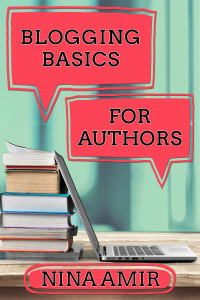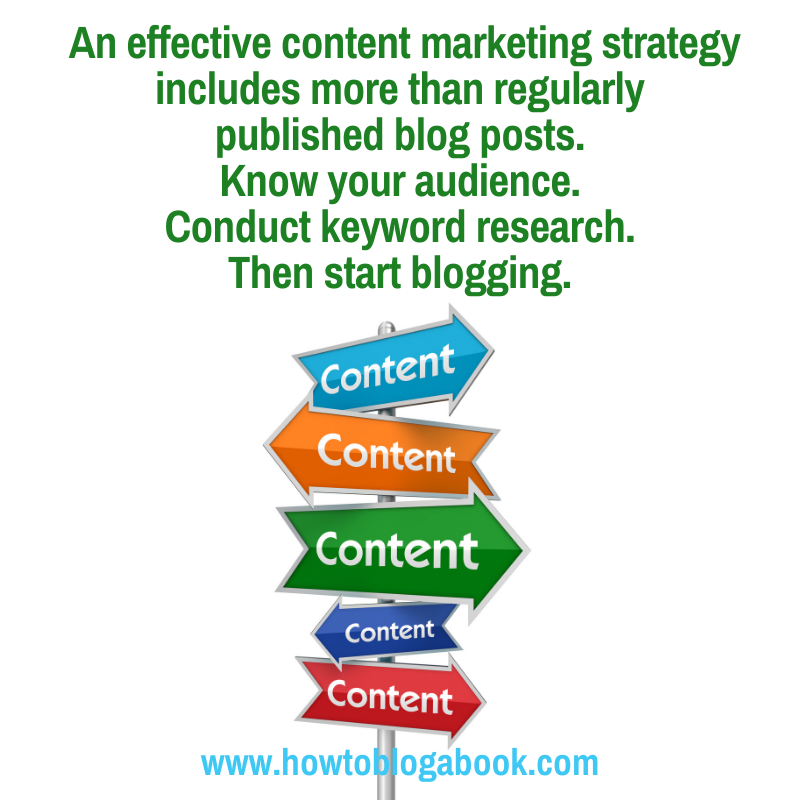Blogging constitutes an integral part of your content marketing strategy. In fact, it’s the most critical part. To attract and retain your target audience, you need to create and distribute relevant content consistently.
Your blog can generate more leads than a paid ad. And your business and books have more chances of showing up in organic search results and driving traffic to your website if you’re blogging regularly.
Each blog post offers you a chance to be transparent about who you are and why you do what you do. As the hub of your content marketing wheel, your blog sits in the center of your content creation strategy. It allows you to share updates about your brand in a manner that also gives you authority and credibility.
Blogging also supports your other content outlets. For example, every time you create a blog post, you can share it across your social media networks, in your newsletters, and as a podcast episode or video content.
Without a blog, the only content you’d have to share would be that created by others. While curation is a worthy activity, you can’t effectively build your brand or sell books around other blogger’s content.
If you start blogging without a content marketing strategy, you’ll end up creating an erratic collection of posts that could confuse or overwhelm your audience. It’s easy to launch a blog and start writing and publishing articles. While more challenging, looking at how your content contributes to your overall business or publishing goals is more effective. Indeed, only with a content marketing strategy can you produce content that serves your marketing goals.
Knowing Your Audience
Before you start writing posts, answer this question: Do you know who your audience is? You may have many topics you can write about, but your blog is for your audience’s benefit. Therefore, your first step when creating an effective content marketing strategy should be identifying who will read that content. Then, tailor your content to your audience’s needs.
Defining your audience as part of your content marketing strategy creates a consistent approach for content creation and reader targeting. Define your audience for all your online activities and use that reader profile when creating blog posts.
Know Your Audience’s Pain Points
There’s the demographic aspect of defining your audience (age, location, interests, etc.). Yet, a key element to creating compelling content involves familiarizing yourself with your audience’s pain points. What challenges do they face? If you know what they want or search for, your content will attract their attention. Visit industry forums, where you can read the questions being asked.
 Also, pay attention to what your competitors are doing and saying. Thought leaders within your niche are likely already reaching your target audience, so study their websites. Don’t just read their blog posts but also look through the comments to see what questions are being asked or topics being discussed. Visit your competition regularly and use the information to help develop your own content marketing strategy. This task also enables you to define your own voice and brand.
Also, pay attention to what your competitors are doing and saying. Thought leaders within your niche are likely already reaching your target audience, so study their websites. Don’t just read their blog posts but also look through the comments to see what questions are being asked or topics being discussed. Visit your competition regularly and use the information to help develop your own content marketing strategy. This task also enables you to define your own voice and brand.
I found this exercise really useful. It helped me decide what content to create and which formats to incorporate into my content marketing strategy, and what I didn’t want to do. For example, when I saw what a high bar my competitors were setting on YouTube to connect with their audience, I knew I’d never be able to compete. So I launched a podcast instead.
Defining Your Keywords
As part of your efforts to create an effective content marketing strategy, spend time developing a core group of keywords (five is a good target) to help develop your voice. That doesn’t mean that you can only blog about five different topics; it means all your content supports that core group of keywords.
On my self-publishing website, my primary keywords are: Book Marketing and Promotion, Book Production, Book Design, Self-Publishing, and Nonfiction Writing. That broad spectrum of topics allows me the freedom to write about blogging, writing software, publishing platforms, book distributors, paid advertising, and author interviews because they are all sub-topics of my core group of keywords.
How to Do a Boolean Keyword Search
Type the keywords you want to target into your search engine and review the results. If you’re not sure which websites to follow, you’ll likely find some as you do so.
It’s more efficient to use Boolean search to ensure your search results are relevant. Here’s how:
- Use quotation marks to search for an exact phrase, e.g., “book marketing.” Without the quotation marks, your search treats each word as separate, and you’ll get book results unrelated to marketing and marketing results unrelated to books.
- Use AND to include two different search terms, e.g., writing AND nonfiction. This search returns results with both words, but not necessarily next to each other.
- Use OR to widen your search with multiple terms, e.g., “book marketing” OR “book promotion.” This looks for content, which has one or other of these exact phrases.
- Use NOT to exclude a specific term, e.g., marketing NOT promotion.
- Use parentheses to create modifiers for a complex search, e.g., book AND (marketing OR promotion). This returns results containing book, and either marketing or promotion.
This is just the tip of the iceberg as far as Boolean searches go, but it should be enough to generate useful search results to find competitors within your niche to study.
When you build your content marketing strategy around your target audience and target keywords, you have a solid foundation to drive your content marketing decisions. This makes it easier to determine what topics are the most relevant. And when you consistently blog about topics your audience deems relevant, they will find your site, services, and books. When traffic increases (and sales) you will know your content marketing strategy is working.
What content marketing challenges are you wrestling with? Let us know in the comments below. And please share this article to help your fellow bloggers keep their content marketing efforts on track.
About the Author

Jay Artale abandoned her corporate career to become a digital nomad and full-time writer. She’s an avid blogger and a nonfiction author helping travel writers and travel bloggers achieve their self-publishing goals. Join her at Birds of a Feather Press where she shares tips, advice, and inspiration to writers with an independent spirit.

This one article of Jay’s gave me more practical advice than the combined reams of similar pieces I’ve read. Thanks for the great tips. Saving this one#
This is very useful for me, I got some vital point regarding this content marketing strategy which would be really beneficial for me to my audience’s needs. Yes, I totally agree with you, content marketing plays a great role to identify who will read that content .Thanks for sharing such quality information regarding this content marketing strategy!